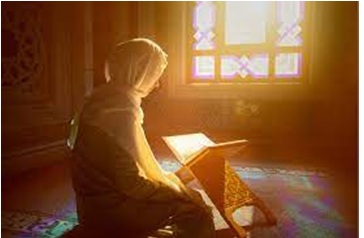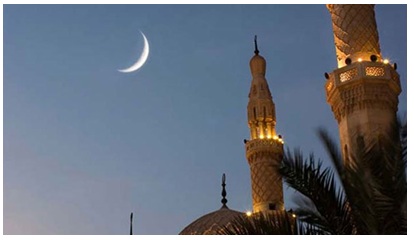Letters to the Editor
Q. Is it right for us to chat on the net?
A. F,
Hyderabad
YMD
If (you are a woman and) the chat is with other women, obviously, there is no harm. So also, if it is with someone you can never marry (a mahram), then too it is allowed. In fact, it should be encouraged. Because that keeps blood kin in contact and increases love and understanding.
If the chat is with non-mahram men, then, if the talk is purely intellectual, or, at least informative, then too there is no harm. However, personal identity should not be revealed. After all, why should someone chatting with you over the net be interested in knowing your sex? Or your age? Or whether you are married or not? He is chatting with a mind and a person of certain mental capabilities.
Personal details should be of no interest to him. If he insists on knowing your personal details, then he is not interested in your mind and soul. He is interested in other aspects of your personality. Cut him out. Similarly, you should also not ask for personal details. If he gives them without asking, either cut him out, or tell him you are not interested in his physical entity. Also, such chatting should be done through the keyboard. Chatting with a non-mahram through voice, should be avoided.
These conditions will ensure that the conversation will remain purely intellectual, something which Islam appreciates. As for people doting on each other, Islam disapproves of it.
Q: I am a new reader of YMD and like it very much. I have a problem: can you solve it? A relative of mine is married since sixteen years but he does not have any children. So he married another woman in secret. From her, he has two children. But his first wife does not know anything about the second marriage. Should he tell his first wife or not?
Mohammed Ahsan,
Hyderabad
YMD
 Apart from the fact that the man committed breach of trust by not consulting the first wife, he has also put to risk the material rights of his second wife and children. The two wives and the two children are the rightful inheritors of his property, which is likely to be denied to them after his death because he kept the fact of his marriage secret.
Apart from the fact that the man committed breach of trust by not consulting the first wife, he has also put to risk the material rights of his second wife and children. The two wives and the two children are the rightful inheritors of his property, which is likely to be denied to them after his death because he kept the fact of his marriage secret.
Yes, Islam has not made it compulsory for a husband that the first wife’s permission be obtained for a second or third marriage. But, it does not approve of secrecy either. It directs us to take the front door and not the back-door in our dealings.
The said man must immediately let not only the first wife know of his second marriage, but also everyone else of the family.
Q. Is it necessary to pay Zakah only during Ramadan or can it be given in any other month of the lunar year?
 YMD
YMD
Yes, Zakat may not be tied up to Ramadan. It can be offered anytime during the Lunar year. It could even be split and offered in two or more installments, with the final installment coming at the end of the Lunar year.
Q. What is the meaning of ‘Yajuj wa Majuj’ that are mentioned in the Qur’an?
YMD
Yajuj and Majuj are the names of two peoples’ who have been mentioned in chapters Al-Kahaf, verse 94 and Al-Anbiya,’ verse 26 in the Qur’an. They used to raid lands adjoining theirs.
Dhu al-Qarnayn, a king so far unidentified, was requested help in construction of a barrier between them and the victims of their raids. He obliged and a massive wall was built which kept them – Yajuj and Majuj – locked into their own territory preventing raids on their neighbours. The barrier, also so far unidentified, remains till today. It will be breached a little before the end of the world, after the arrival of ‘Isa the son of Mary, and the two peoples’ will overrun the world, far and wide, taking destruction with them.
They’d be irresistible sheerly because of their numbers forming an unstoppable human sea. They will be so many that when they pass by ponds and lakes, they’d drink off their water. Unable to face their onslaught, ‘Isa (asws) will retreat to mountain tops. Finally, they will die off en-masse from a disease that Allah (swt) will send upon them.
Q. Why is music prohibited in Islam?
Anonymous,
On Email
YMD
We do not know all the reasons why music has been prohibited in Islam. A few points are however, obvious.
Firstly, music and musical sessions go against the way of life promoted by Islam, its culture and its ethos. Islam envisages a life which is primarily dedicated to the Hereafter. The Qur’an reminds us, quite persistently, that this is a short life and that its pleasures are ephemeral. It therefore advises us to spend this life in endeavors that help build the Hereafter.
Accordingly, it recommends ways and methods of spending time in constructive and useful activities. The time that still remains on hand, after the constructive activities, may be spent in activities that afford pleasure as well as achieve other objectives.
Music on the other hand is a kind of opium. In fact, it is so closely related in its effect on the human mind that many music lovers turn to drugs when music no more leaves the same effects on their minds as it used to do in the earlier stages. It is similar to a man who is used to feeling “high” after a peg of whisky. However, after some time he needs two because one peg does not anymore produce the same effect. Similarly, those addicted to music, have to go for a stronger dose of anti-depressant which only drugs can provide.
 Music takes time off constructive and useful activities and helps forget the worries of life and its tensions. In fact, that is the main reason of its popularity in modern times. The stress of modern life, the anxieties, worries and the resulting tension, leading a man to a situation in which he is always at the edge, needing a dose of drug to forget. Either they have to go for Retalin, Prozac, or at least music. Nonetheless, the effect is for a short while. Once the music is off, the mind is back to wretchedness.
Music takes time off constructive and useful activities and helps forget the worries of life and its tensions. In fact, that is the main reason of its popularity in modern times. The stress of modern life, the anxieties, worries and the resulting tension, leading a man to a situation in which he is always at the edge, needing a dose of drug to forget. Either they have to go for Retalin, Prozac, or at least music. Nonetheless, the effect is for a short while. Once the music is off, the mind is back to wretchedness.
Islamic life is in complete contrast with the modern life. In Islam, there is no conflict between an individual and another, or between individual and the society, or the individual and the natural world around, or between the individual’s mind and his soul. A Muslim is at peace with himself, he is at peace with others of his kind, with the surroundings in which he lives, and is not at war with God. Being in total peace, he stands in no need of music, drugs or sedatives.
Indeed, music can be easily made the standard of judging a man’s faith in Islam. The more that he needs music, for soothing his mind, the weaker his faith in Islam is. The relationship is direct.
Islam is not the modern life based on scientific principles. This kind of life gives rise to problems, diseases, and then comes up with suggestions of relief: without ever curing a single malady. Rather, in the Islamic way of life, problems are stubbed in the bud. The mental and psychological problems that the modern life gives rise to, do not simply exist in the Islamic system of life, and hence, the need for soothing therapy of music is not an item on its inventory.
Q. I’m an ardent reader of your prestigious magazine since last three-year or so. I find it very interesting. I have some queries which I hope you will clear. Is a ‘Fard’ prayer in Ramadan equal to 70 ‘Fard’, and, is also same for ‘Qaza-e-Umri’?
YMD
Yes, the Ramadan Prayers are rewarded seventy times more than those of other days. As regards the second part of your question, we couldn’t guess_whatzit you mean.
Q. Can I close my eyes during prayers as I found that I can concentrate very well during prayers while closing my eyes?
Guess_whozit,
On Email
YMD
It is not sunnah to close the eyes during Prayers. Further, Khushu` and Khuzu` in Prayers are not related to closing or opening of the eyes. Neither in fact, concentration, as widely understood, is the equivalent of Khushu’ and Khuzu’.
Q. I am very confused about the practice of Shab-e-barat. Please clear my doubts as soon as  possible. Does the word shab-e-barat exist in the Holy Qur’an or in Hadith?
possible. Does the word shab-e-barat exist in the Holy Qur’an or in Hadith?
YMD
This is an interesting question, for it lays bare the error of those who have fallen into various practices on this night of their naming, while even the word is not found in the Qur’an and Hadith. The situation of those who devote themselves to various congregational acts on this night, is similar to the situation of the Christians. They believe in Trinity, but the word “Trinity” does not occur once in the Bible.
Q. Is it right to practice Shab-e-barat?
YMD
No. You better avoid joining the masses in things they do on this night.
Q. Is it right to visit the graveyard especially on this day.
YMD
You could visit the graveyard, on this occasion, but not necessarily in the company of the people.
Q. Lastly, is it correct that we read certain portion of the Holy Qur’an for the reward of the dead.
Ali Farooqui,
On Email
YMD
According to some scholars it is allowed to recite the Qur’an with the intention of a dead man benefitting from the recitation. But according to some others it is not allowed. However, there is no difference in opinion between the two sides that the best way of rendering service to the dead is to spend in charity on their behalf.
Q. What is the reality of Shab-e-Barat? Is it mentioned anywhere in the Qur’an and Hadith? According to my knowledge it is not mentioned in the Holy Qur’an.
YMD
You are right. It is neither mentioned in the Qur’an nor by that name in the Hadith
Q. In our area’s mosque during the Friday sermon it was said that on this night the spirits of our deceased come to us and ask us to pray for them.
YMD
It is incorrect to say that the spirits of the dead visit the earth. Spirits of the humans that are dead, are not free to fly about as they wish. Angels are in-charge of them and are confined to specific places, not at all free to move about.
Q. Also Surah Al-Dukhan was recited (first 4-5 verse) and we were told they are about this night. Is it really mentioned in this Surah.
YMD
No, Shabe Bara’at is not the subject of either opening verses of Surah Al-Dukhkhan, nor of any other Qur’anic verse. Verse 4 of Surah Dukhkhan refers to the Night of Qadr. There is a hadith which says that it refers to the night of 15th of Sha`ban. But that is weak hadith.
Q. Is it ‘mustahab’ to fast on the following day?
YMD
You could fast, if you wish.
Q. Is it allowed to use perfumes, deodorants, etc. knowing that they contain a certain amount of alcohol?
Danish Anwar,
Bangalore
YMD
Yes, it is allowed if alternatives are not available.

